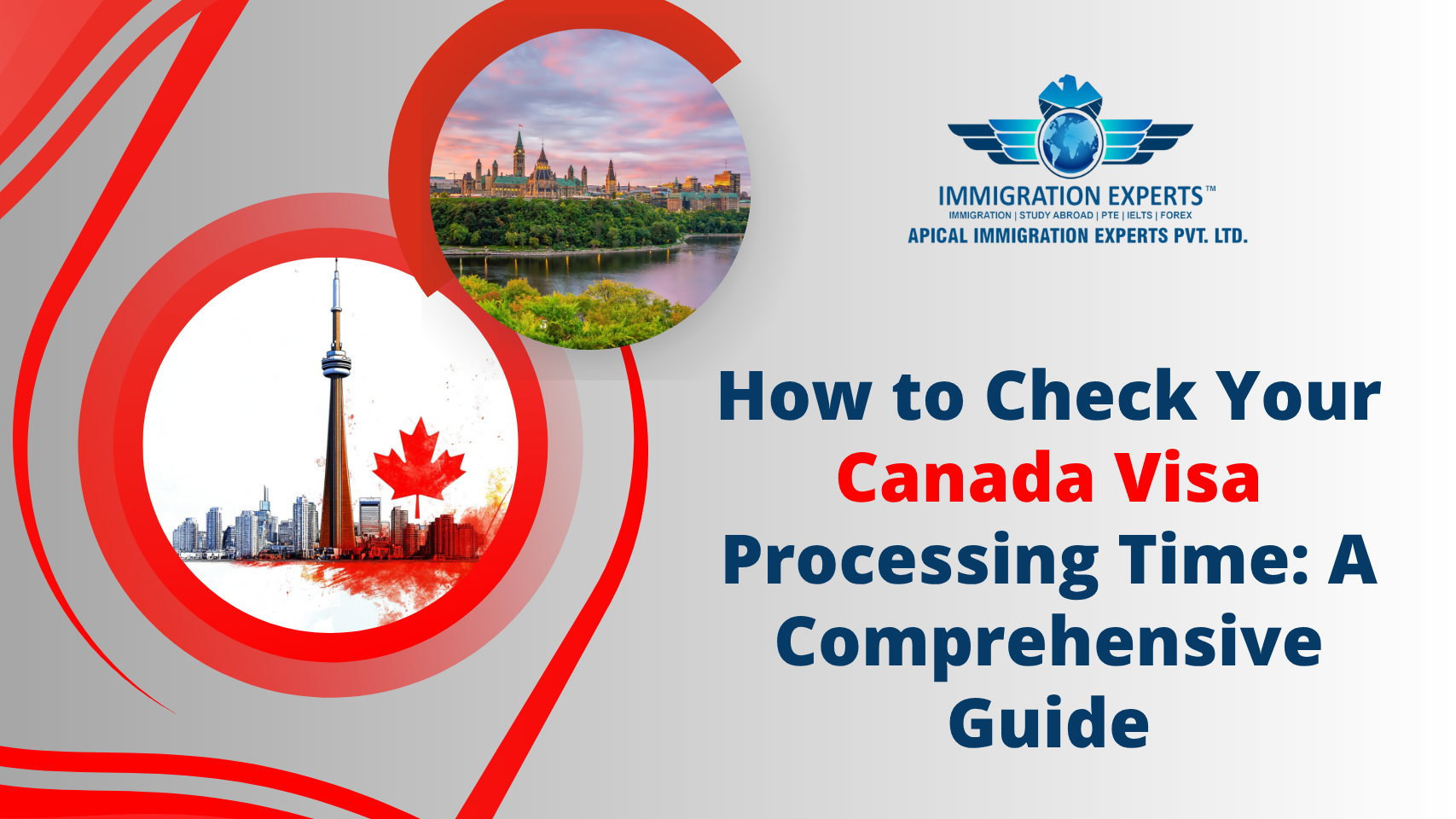If you’re planning to move to Canada—whether to study, work, visit, or settle permanently—you’ve likely wondered: How long will my visa take to process? The answer varies depending on the visa type, your country of residence, and how complete your application is.
Thankfully, Immigration, Refugees and Citizenship Canada (IRCC) offers a dedicated tool to help you check estimated processing times for all visa categories. In this guide, we’ll walk you through how to check your Canada visa processing time, what affects the timeline, and what steps you can take to avoid delays.
Why It’s Important to Know Your Visa Processing Time
Knowing your visa processing time can help you:
- Plan travel or relocation better
- Avoid last-minute surprises
- Set realistic expectations for starting work or study
- Stay mentally and financially prepared
When applying for any type of visa—study permit, work permit, tourist visa, or PR—processing time becomes a key part of your immigration planning.
How to Check Your Canada Visa Processing Time (Step-by-Step)?
You can easily check the estimated time for your application using IRCC’s official online tool.
Step 1: Visit the IRCC Processing Time Page
Go to the official IRCC processing time checker:
Step 2: Select Your Application Type
Choose the type of visa you are applying for. Options include:
- Visitor visa
- Study permit
- Work permit
- Express Entry (PR)
- Spousal or family sponsorship
- Citizenship application
Make sure you select the correct category to get accurate results.
Step 3: Answer Additional Questions
Depending on your selection, you’ll need to answer a few more questions like:
- Where are you applying from (inside or outside Canada)?
- Is your application paper-based or online?
These questions help customize the timeline specific to your situation.
Step 4: Review the Processing Time
Once you’ve entered your details, the system will display an estimated processing time, shown in days, weeks, or months.
Note: The processing time is an average based on recent cases. Your application may take more or less time depending on your unique circumstances.
Factors That Influence Canada Visa Processing Times
Visa processing times are not fixed. Several factors can affect how long it takes for IRCC to process your application:
- Type of Visa
Express Entry and SDS (Student Direct Stream) are generally faster. Spousal sponsorship and PNP PR applications may take longer.
- Country of Residence
Applications submitted from countries with high volumes or extra verification steps may take longer.
- Application Completeness
If your application is missing documents or has errors, IRCC will request additional information, which delays the process.
- Biometrics and Medical Exam
Delays in scheduling biometrics or medicals can add weeks to your timeline.
- IRCC Workload and Policy Changes
Seasonal changes, staff shortages, or policy updates can impact overall timelines across visa types.
Sample Canada Visa Processing Times (As of August 2025)
These are average processing times and may vary based on your application:
| Visa Type | Processing Time |
| Visitor Visa (outside Canada) | 28–35 days |
| Study Permit (outside Canada) | 7–8 weeks |
| Work Permit (outside Canada) | 10–12 weeks |
| Express Entry (FSW, CEC) | 6 months |
| PNP (paper-based) | 12–14 months |
| Spousal Sponsorship (outside) | 10–12 months |
| Citizenship Application | 12 months |
Always refer to the IRCC site for the latest estimates.
Tips to Avoid Processing Delays
While you cannot speed up IRCC’s internal processing, you can avoid delays on your part:
- Submit a complete application with all required documents
- Use the IRCC checklist tool before submission
- Provide accurate information and avoid mistakes
- Pay the correct application fee in advance
- Schedule biometrics and medicals promptly
Using a licensed immigration consultant can help avoid costly mistakes or delays.
Can You Speed Up Your Canada Visa Processing?
There is no official way to “fast-track” your application unless you qualify for a special stream. However, here are a few exceptions:
- Student Direct Stream (SDS): 20 calendar days
- Global Talent Stream (Work Permit): 10 business days
- Express Entry: 6-month standard timeline
Note that these faster options have strict eligibility criteria.
Frequently Asked Questions (FAQs)
- How often does IRCC update processing times?
IRCC updates the processing times on a weekly basis, based on data from recent applications. You should check regularly for the most accurate estimate.
- Can my application be delayed beyond the shown processing time?
Yes. Factors like incomplete documentation, background checks, or high application volumes can cause delays beyond the estimated timeline.
- Does faster processing mean guaranteed approval?
No. Faster processing only means quicker evaluation. Approval still depends on your eligibility, documentation, and background checks.
- What can I do if my application is taking too long?
You can submit a web form inquiry to IRCC after the average time has passed. If it’s urgent, you may also request expedited processing (in very rare cases).
- Will hiring a consultant speed up my application?
A consultant cannot influence IRCC’s processing speed, but they can ensure your application is error-free and complete, which helps prevent delays.
Conclusion:
Checking your Canada visa processing time is one of the most important steps before and after submitting your application. With IRCC’s online tool, it only takes a few minutes to get an accurate estimate. While processing times vary, staying prepared and submitting a complete application is the best way to avoid delays.
If you’re unsure how to apply or want to increase your chances of a successful outcome, it’s always wise to consult with an experienced immigration expert.






